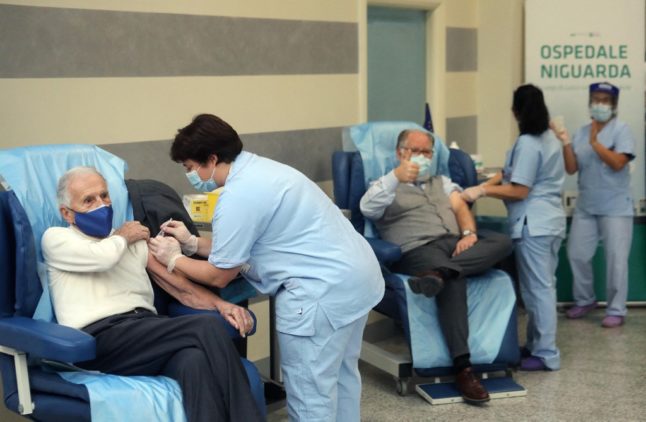What measures are in place?
The measures are a mix of national recommendations and rules. The recommendations are guidelines and suggestions that are not binding and can’t be enforced, whereas restrictions must be followed.
The national rules supersede any local restrictions unless the measures implemented regionally are stricter.
What are the rules at home and for visits?
The headline measure many will need to be aware of are the proposed limits to the number of guests you can have. The limit will be ten people, not including household members. However, up to 20 guests are allowed once during the Christmas and New Year holidays provided a social distance of one metre can be maintained.
This is a recommendation and is not legally enforceable.
However, People are also being asked to limit their social gatherings and taking public transport to events.
There are no curbs against travelling to spend time with family and loved ones.
What are the rules for self-isolating?
People who return a positive coronavirus test will need to quarantine themselves for six days starting from when they tested positive. The isolation will be a minimum of six days but will not end until the person has been fever-free for at least 24 hours without using a fever-reducing medicine.
Household members will need to isolate before testing themselves after seven days. Close contacts must isolate for three days before taking a test. After that, however, they will need to be in what’s known as “leisure quarantine”. This means they can go to work, although they are expected to behave as if they are in quarantine outside of work hours. After day seven, they will test again, and all quarantine obligations end.
If the test returns positive, then the quarantine rules for those infected with the virus will apply.
READ MORE: What are the current rules for Covid-19 self-isolation in Norway?
Working life
People are being asked to work from home wherever possible.
Those who do go into work will be asked to social distance and use face masks where social distancing isn’t possible unless a partition or barrier is in place.
Bar’s restaurants and cafes
The government introduced a national ban on the sale of alcohol in bars and restaurants on December 15th. This will be in place for four weeks. Venues will not be forced to close, however.
For starters, a maximum of 20 people can gather indoors at a public or rented venue. Bars, cafes and restaurants and one-on-one services such as hairdressers will need to register customers’ contact information, provided consent to do so is given. Some leisure settings will also need to register guests’ contact details. This won’t apply to shops, libraries and shopping centres.
Social distancing and face mask rules also apply at hospitality venues.
At a local level, municipalities will have the power to require Covid-19 certificates in hospitality settings.
Shopping and leisure time
The New Year sales won’t be too heavily impacted by the new restrictions, although shoppers will be required to use a face mask when it’s not possible to keep a social distance of one metre.
Shops will not register customers’ contact details, and there will not be capacity limits, as has been the case previously during the pandemic. However, in some instances fitting rooms will be closed to customers.
Leisure centres, gyms and swimming pools can remain open for individual training, meaning classes are cancelled. However, guidelines ask that changing rooms stay closed.
Schools and university
All primary and lower secondary schools would be moved to yellow level, and all upper secondary schools and adult education services must be run at red level.
Yellow level means social distancing, assigned seating plans for each student, no physical contact between individuals and minimising mixing between different classes to limit the spread of Covid-19.
Red level sees measures such as much smaller class sizes or cohorts and partial online schooling being implemented.
The schools will move to their respective levels on December 16th.
Universities’ and colleges would be required to facilitate digital teaching as soon as possible.



 Please whitelist us to continue reading.
Please whitelist us to continue reading.
Member comments